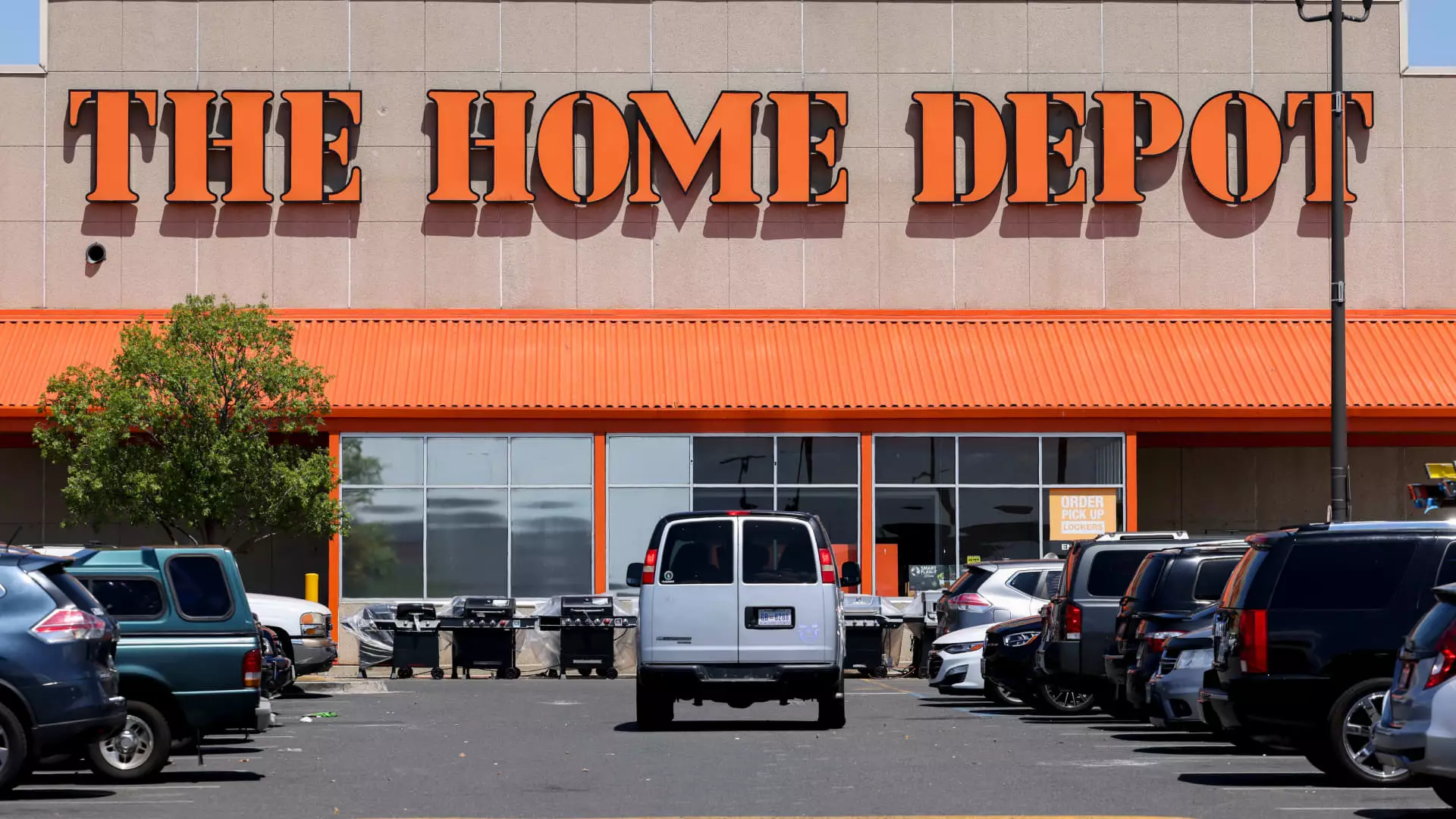The retail landscape is dynamically shifting, influenced by various economic factors and consumer behavior. Two giants in the sector, Home Depot and Best Buy, find themselves at opposing ends of Wall Street’s analysis spectrum. While analyst sentiments are bullish on Home Depot, concerns linger over Best Buy’s future performance. By delving into the recent evaluations from Telsey Advisory Group and Citi, we can glean insights into the prospects of both companies and the implications for investors.
Home Depot has recently received a notable endorsement from Telsey Advisory Group, which upgraded its stock rating to ‘buy’ and adjusted the price target upward from $360 to $455 per share. This new target suggests a potential upside of nearly 14% from recent trading levels. This optimistic outlook comes just in time as Home Depot prepares to announce its third-quarter results, an event closely monitored by market participants.
Despite the expectation of continued “softness” in sales for the current quarter, Telsey analysts predict robust earnings growth and revenue acceleration as early as 2025. Several factors underpin this forecast, including anticipated declines in mortgage rates, ongoing recovery efforts from hurricanes, and easier sales comparisons due to a post-pandemic surge in demand. This combination is expected to enhance Home Depot’s market position within the home improvement sector, particularly as the company strengthens its offerings in the professional market, which caters to significant renovation projects.
Year-to-date, Home Depot shares have gained nearly 17%, although this performance lags the broader index, which has risen over 25% during the same timeframe. Nevertheless, Telsey’s confidence seems well-placed, deriving from a backdrop of economic stability and a tempered inflation environment. Recent Federal Reserve rate cuts are expected to provide a lift to mortgage affordability, further stimulating the housing market and indirectly benefiting Home Depot.
Jim Cramer has consistently advocated for investing in Home Depot, asserting that the ongoing monetary easing could position the retailer as a primary beneficiary of economic recovery. Although some hesitation may occur due to potential short-term earnings fluctuations, the key takeaway for investors is that the long-term outlook appears favorable.
In stark contrast, Best Buy appears to be in a more precarious situation according to Citi, which has reduced its price target from $115 to $109 per share while maintaining a ‘buy’ rating. One of the primary concerns driving this downgrade is the anticipated impact of the proposed tariffs from the incoming administration, particularly regarding imports from China. As a retailer with extensive reliance on Chinese-manufactured electronics, any increase in tariffs could impose significant inflationary pressures on costs and ultimately affect pricing strategies.
Despite these looming pressures, analyst optimism has not vanished entirely. Citi believes that the ongoing cycle of technological upgrades powered by artificial intelligence will bolster demand for Best Buy’s products, particularly as consumers seek to replace and upgrade their existing devices. This potential for growth amidst adversity suggests a mixed but cautiously hopeful outlook for the electronics retailer.
Best Buy’s stock has already seen a decrease of approximately 2.5% this week, and in light of macroeconomic uncertainties tied to tariffs and inflation, investors remain wary. Nonetheless, Citi’s optimism about the tech replacement cycle illustrates that the company may still harness opportunities for growth, especially if interest rates decline and stimulate spending in related categories like home appliances.
The contrasting reports on Home Depot and Best Buy underline the complexities currently present in the retail industry. For Home Depot, a mix of economic catalysts and strong fundamental performance lays the groundwork for a promising future. In contrast, Best Buy grapples with external pressures that could hinder its trajectory, even as it entertains possible growth avenues.
As investors navigate these waters, it is essential to stay grounded in the fundamentals of both companies. While Home Depot stands poised for potential success fueled by economic recovery and expansion, Best Buy’s future hinges heavily on external factors like tariffs and consumer trends. Keeping tabs on these developments will be crucial as the broader economic landscape continues to evolve in the coming months.

